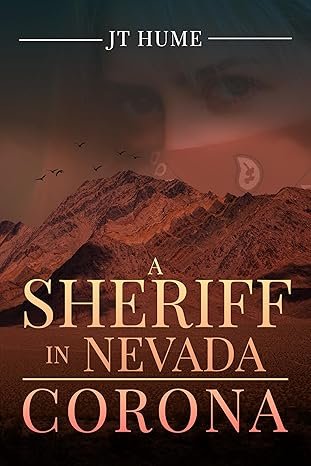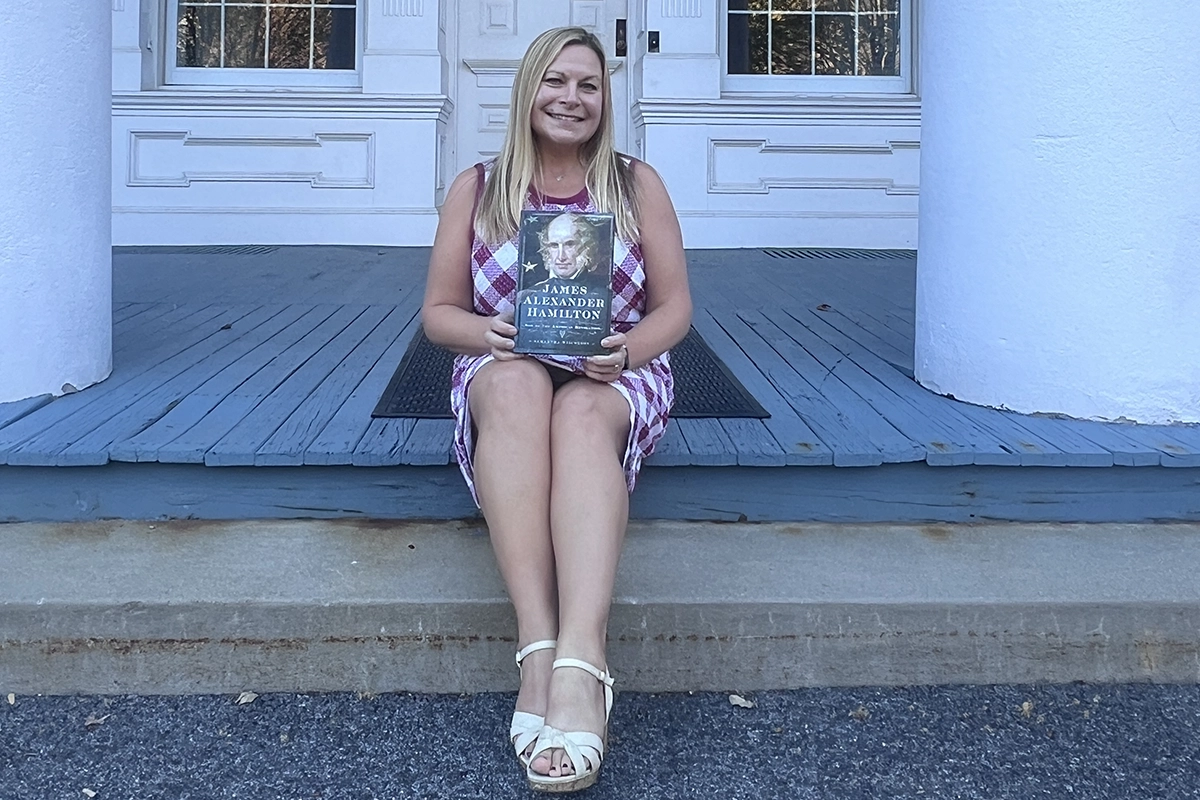JT Hume Reflects On Writing, Life Experiences, And Genre-Blending Mastery
Author JT Hume, turning life’s journeys into unforgettable novels that redefine storytelling with heart, grit, and imagination.
Journey Through Writing And Living
JT Hume discusses his inspirations, multidimensional characters, and genre-blending craft, shaped by military service, Nevada’s rugged terrain, and life lessons gleaned from love, chess, and collaboration.
Few authors bring the richness of life’s experiences into their storytelling quite like JT Hume. A gifted indie novelist and podcaster, Hume has cultivated a literary brand that defies easy categorization, weaving together elements of character-driven drama, gritty realism, and thought-provoking themes. Whether he’s crafting a tale set against the stark, timeless backdrop of rural Nevada or transporting readers to the vast expanse of interstellar worlds, Hume’s ability to blend genres—like romance, mystery, and politics—into seamless narratives is nothing short of impressive. His unique voice resonates, built on a foundation of personal triumphs, strategic depth, and the kind of genuine humanity we all crave in great fiction.
A Nevadan by choice and an Air Force veteran by service, JT Hume’s life story reads like something out of his own novels, where resilience and adaptability shape the arcs of intriguing characters. His books have captivated readers for many reasons, but his ability to create multidimensional protagonists—such as Sheriff Maggie Doane in A Sheriff in Nevada—is a standout quality. His female leads are powerful yet nuanced, built from the examples of strong women he has encountered in his own life. Whether co-authoring with his wife, Cassidy Carson, or sculpting stories steeped in romance and redemption, Hume’s works carry a deep sense of authenticity and heart, informed by over four decades of partnership with his soulmate.
In this exclusive interview, JT Hume takes us behind the curtain of his creative process, offering insights into his genre-spanning career, the influence of his Air Force service, and the undeniable impact of his personal life experiences. His thoughtful reflections and strategic genius, honed through years of playing chess and navigating the complexities of storytelling, showcase exactly why his novels resonate so deeply. Whether you’re a fan of small-town mysteries or sweeping sci-fi romance epics, JT Hume promises stories that challenge, inspire, and entertain. Dive into this conversation and discover what makes this remarkable author one of the pillars of modern indie fiction.
JT Hume transforms personal experiences into compelling stories, creating unforgettable characters while effortlessly blending realism, ambition, and heart.
What inspired you to write “A Sheriff in Nevada” and its sequel, “Downfall”?
I’m always intrigued by people-driven stories like “A Sheriff in Nevada.” I published a series of books about Child Protective Services and became intrigued by the law enforcement side, but didn’t want to write just another cop story. At the same time, I’m fascinated by rural Nevada, a vast area and culture almost frozen in time. How do I blend a modern crime story in an environment with gritty, memorable characters? And a tough-as-nails female lead character, to boot? The challenge helped me create my most popular books.
How do your experiences in the United States Air Force influence your storytelling?
The Air Force made me an author. Early in my enlistment, a senior leader discovered I could write, and he trusted me with a complex, high-visibility report for a critical project. Not long after, a short story I wrote was published in the University of Maryland’s student fiction newsletter. Both were happy surprises that made me believe in myself as an author. Belief is powerful!
What draws you to writing about diverse settings, such as rural Nevada and interstellar journeys in the “Serving Salvation” series?
Nevada and space are remote and challenging environments, and they require strong personalities and hard decisions to survive. Layer the human condition on top of that, and you have the recipe for an engaging story where we read about characters who represent the best and worst of us, all struggling to survive. My characters risk everything because they build in a better tomorrow. With this in mind, these settings lend themselves to excellent storytelling.
Can you share your writing process and how you balance genres like romance, politics, and mystery?
I’m the stepson of a professional violinist, and while I am not comparing myself to the classical greats, I understand how the blending of the numerous and diverse parts of an orchestra can produce a satisfying musical piece. Writing is the same, threading the complex elements of our humanity, society, and culture into a harmonious combination of literary fiction. I can only hope my stories are music for my readers’ imaginations.
How do you go about creating complex, multidimensional characters like Maggie Doane in your novels?
I’m not afraid of borrowing examples from real life. Towards the end of my public service career, I was blessed to work with strong women whose leadership styles and personalities served as the role models for Sheriff Maggie Doane. Like Maggie, my supervisors were focused on solving problems and completing projects while balancing conflicting mission priorities and troublesome personalities. Once I dropped my bosses into Maggie, the “Sheriff” books almost wrote themselves.
What challenges did you face when transitioning from one genre to another, such as from mystery to science fiction?
I feel the genre is not nearly as important as the people in the book. Like they say, “If you build it, they will come.” If you write a good story with believable, heartfelt characters, then the genre becomes a living part of the adventure. The challenge for me after picking a genre is getting the essentials right, especially in science fiction. Respecting my readers’ attention to detail helps keep them engaged in the story and makes for a better book.
How does your background in playing chess reflect in the strategic elements of your storytelling?
Chess is all about “Why did they make that move?” and “How do I react?”. Your effectiveness as a player is your response to those questions, especially when calculating the most likely outcomes to the play on the board. It’s the same with writers. Developing story elements based on those questions forces authors to develop plots around why a character acts as they do and how others in the book respond to that behavior. I’m not a great player, but I am a better writer because of chess.
What role does collaboration play in your work, particularly in co-authoring “From Tundra to Tiara”?
Collaboration is hard for me. I’ve spent a lifetime internalizing emotional events, and my writing sometimes reflects this. Co-writing FTTT with another author—who happened to be my wife—was outside my comfort zone, yet it evolved into what I feel is a natural progression in our relationship. The book became better because we did it together. The entire project made me more open to positive, constructive criticism and collaboration in general. It may not work for all writers, but for me, it was a humongous win-win.
How do your personal life experiences, like your long-lasting marriage, shape the romantic elements in your stories?
If any single life experience is in my books, it’s the character arc towards becoming a better person. I was fortunate enough to marry the best person I will ever know, but doing so showed me where I needed to improve. This is a major plot point in “Love and Death on I-80 West,” the graphic story about Tucci, the mass murderer slash ex-convict. He too met someone way above his level of emotional maturity, and he recognized he had to improve as a human being to be worthy of her. This non-traditional love story reflected my life lesson about romance: it’s okay to be vulnerable to your soulmate will make you a better person.
What advice would you give to aspiring authors navigating the process of blending multiple genres effectively?
If you’re asking about writers writing in multiple genres, the easiest advice is “Don’t.” Your literary life will be easier when you stick with a single genre. But humans can’t do that. We are amazingly talented and complex. Even Robert Heinlein, the famous science fiction writer, said, “Specialization is for insects.” When you cross genres or blend genres in a single book, do it because you have a story to tell and make sure that the genre you pick serves as characters in your story, not just as background. Your book will make for a much richer experience for your readers.
Editor’s Note

JT Hume crafts compelling stories rooted in Nevada life, blending grit, heart, and humanity. His novels reflect a deep love for his home state and enduring partnership with his soulmate.
A Sheriff in Nevada: Corona follows Sheriff Maggie Doane as she battles her past, her community’s fractures, and a deadly pandemic threatening her small Nevada town. With raw emotion and tense realism, JT Hume delivers a gripping, heartfelt story of redemption, resilience, and the human cost of survival under extraordinary pressure.


















